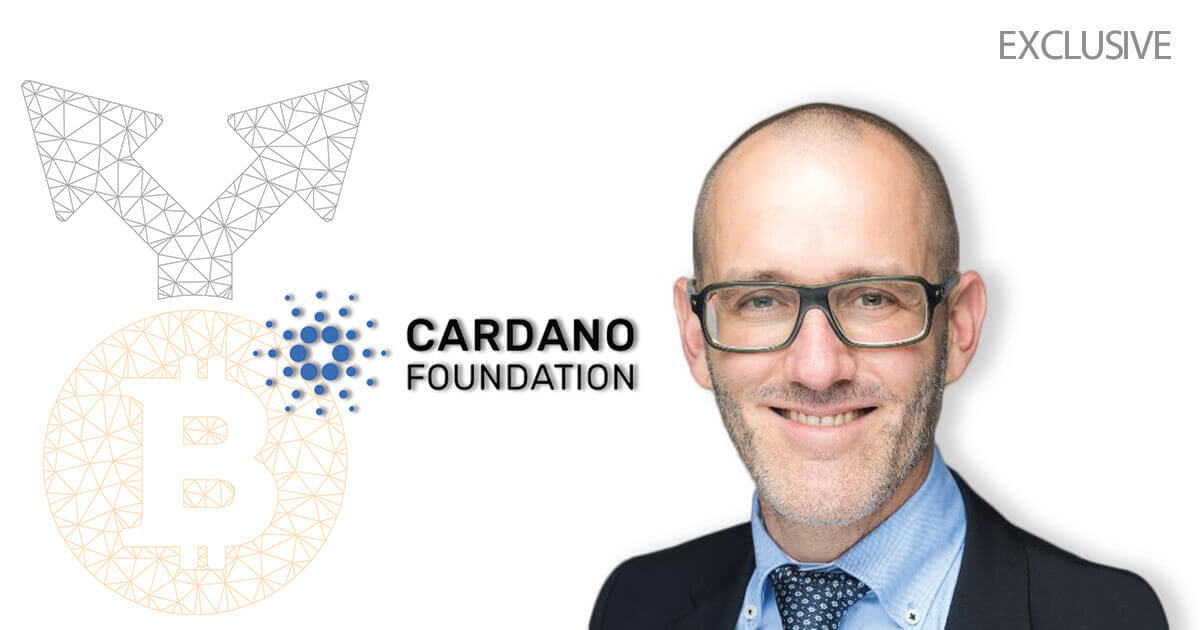Exclusive: Does Forking Mechanism Allow for a Better Blockchain Governance Model?
Nathan Kaiser, Chairperson of the Cardano Foundation and a long-time lawyer in the technology sector, shares his views on the crypto regulatory issues in different jurisdictions and blockchain governance. In particular, Nathan examines whether forking mechanism allows for a better blockchain governance and the reason why “blockchain governance = community governance”.

Exclusive interview with Nathan Kaiser: Part 1
Nathan Kaiser, Chairperson of the Cardano Foundation and a long-time lawyer in the technology sector, shares his views on the crypto regulatory issues in different jurisdictions and blockchain governance. In particular, Nathan examines whether the forking mechanism allows for better blockchain governance and the reason why “blockchain governance = community governance”.
What is holding the industry back from blockchain governance, and what are the solutions we need for off-chain governance?
Similar to the blockchain itself, blockchain governance, whether on-chain or off-chain, is yet to mature just as the industry itself. While it is premature, the blockchain governance needs time for more research as well as elements from the Game Theory, and, certainly, from the economy.
Technological innovation always comes first and it is especially true in tech and policy. Collateral damage is subsequent. Hence, we are at a very early stage of off-chain governance.
The voting mechanism is an essential element of on-chain governance on the blockchain. Can you compare simple majority coin-voting and identity-based quadratic voting on the blockchain? Are there any drawbacks to these two voting methods?
While it is too early to compare the models, every solution is a decision based on values. There are no correct or incorrect voting systems regardless if it is quadratic or identity-based voting. Decisions will always be based on values.
The selection of different voting systems is a choice in itself. Therefore, it is a reflection on your transparency on value judgments rather than justification of the choice you make between the systems.
In terms of forking, recently there are some blockchains such as Algorand and Conflux Chain claiming that there will be no hard forks in their blockchains. Do you agree that a blockchain without forking mechanism is a better governance model than blockchains that allow forks?
There may not be a huge difference, yet there is competitive pressure on all fronts. However, when you allow forking; subsequently, you cannot disallow it. For instance, Ethereum did not allow forking. Although Ethereum did not forbid forking, it did not take proactive measures to reject it. As a result, you will have competitive pressure -- a healthy kind of evolutionary pressure to improve. Otherwise, the competition will create a fork that will directly compete with you.
For blockchains that actively disallow forking, such as Algorand and Conflux chain, it is a fair design decision. You are in direct competition with other chains that will be engaged in similar things. Hence, it needs to be viewed as a different way of dealing with competitive pressures and stress.
Nathan mentioned blockchain governance is community governance in the UNCHAIN Bitcoin & Blockchain Conference, Berlin.
Source: UNCHAIN Bitcoin & Blockchain Conference
In Berlin, you mentioned “Blockchain governance = Community governance.” Can you share with us more about this idea?
Governance is always about people and they matter the most in all tech-related projects. When we deal with regulation and governance in blockchain, it is about the people involved, their interaction, decision-making, reactions and ways of sharing the information. The involved people include token investors, coders, founders, employees and those who invested their time and emotions. The most important key is ways of regulating the interactions of these people involved in the blockchain project.
Image source: Shutterstock




